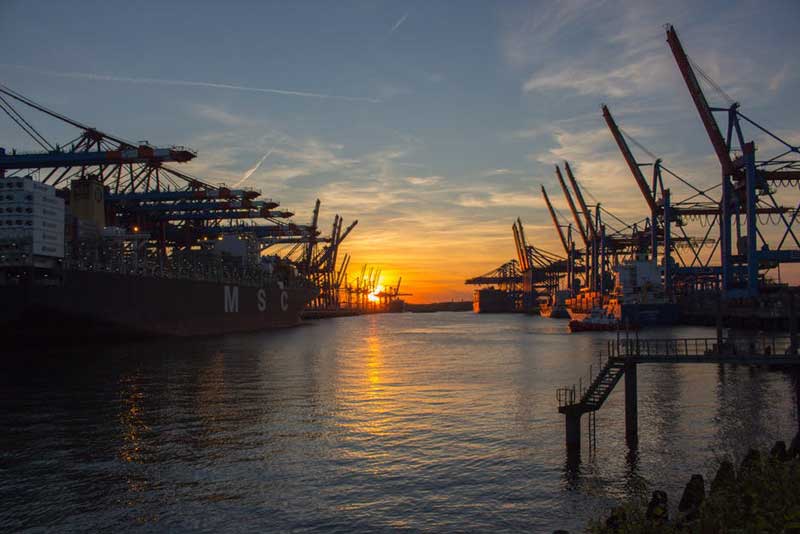
403
Sorry!!
Error! We're sorry, but the page you were looking for doesn't exist.
Hapag-Lloyd, Maersk navigate shipping struggles amid Red Sea hazards
(MENAFN) German container shipping company Hapag-Lloyd reiterated its cautious approach to maritime routes, announcing on Monday that it continues to steer clear of the Red Sea and the Gulf of Aden due to security concerns linked to potential attacks by Yemen's Houthi group. The company emphasized that the perceived "danger zone" associated with such threats has not extended to the Mediterranean region. In an email statement, Hapag-Lloyd explained, "What we see is that the scope of attacks in the Red Sea and Gulf of Aden is expanding more and more... and that is why we completely avoid this region."
This cautious stance follows recent warnings from Hapag-Lloyd's largest competitor, Maersk, regarding the worsening container shipping traffic crisis in the Red Sea. Maersk highlighted that the sector's carrying capacity between the Far East and Europe is expected to shrink by up to 20 percent in the second quarter due to ongoing challenges in the region. Since December, Maersk and other shipping companies have rerouted vessels around the Cape of Good Hope in Africa to bypass potential Houthi attacks in the Red Sea. However, these alternative routes, while ensuring safety, have led to longer journey times and subsequently higher shipping prices.
In a customer advisory issued on Monday, Maersk emphasized the expanding threat landscape, noting that "the danger zone has expanded, and attacks reach farther out to sea." This underscores the evolving security risks faced by shipping companies operating in the region, prompting heightened vigilance and strategic route planning to mitigate potential disruptions and ensure the safety of crew and cargo.
Both Hapag-Lloyd and Maersk's cautious approaches reflect the complex challenges confronting the maritime industry amid geopolitical tensions and security threats. As they navigate these challenges, maintaining operational resilience and ensuring the continued flow of global trade remain paramount objectives. Effective risk management strategies, coupled with collaboration with relevant authorities, are essential in safeguarding maritime operations and sustaining the vitality of international shipping networks amidst evolving threats and uncertainties.
This cautious stance follows recent warnings from Hapag-Lloyd's largest competitor, Maersk, regarding the worsening container shipping traffic crisis in the Red Sea. Maersk highlighted that the sector's carrying capacity between the Far East and Europe is expected to shrink by up to 20 percent in the second quarter due to ongoing challenges in the region. Since December, Maersk and other shipping companies have rerouted vessels around the Cape of Good Hope in Africa to bypass potential Houthi attacks in the Red Sea. However, these alternative routes, while ensuring safety, have led to longer journey times and subsequently higher shipping prices.
In a customer advisory issued on Monday, Maersk emphasized the expanding threat landscape, noting that "the danger zone has expanded, and attacks reach farther out to sea." This underscores the evolving security risks faced by shipping companies operating in the region, prompting heightened vigilance and strategic route planning to mitigate potential disruptions and ensure the safety of crew and cargo.
Both Hapag-Lloyd and Maersk's cautious approaches reflect the complex challenges confronting the maritime industry amid geopolitical tensions and security threats. As they navigate these challenges, maintaining operational resilience and ensuring the continued flow of global trade remain paramount objectives. Effective risk management strategies, coupled with collaboration with relevant authorities, are essential in safeguarding maritime operations and sustaining the vitality of international shipping networks amidst evolving threats and uncertainties.

Legal Disclaimer:
MENAFN provides the
information “as is” without warranty of any kind. We do not accept
any responsibility or liability for the accuracy, content, images,
videos, licenses, completeness, legality, or reliability of the information
contained in this article. If you have any complaints or copyright
issues related to this article, kindly contact the provider above.

















Comments
No comment